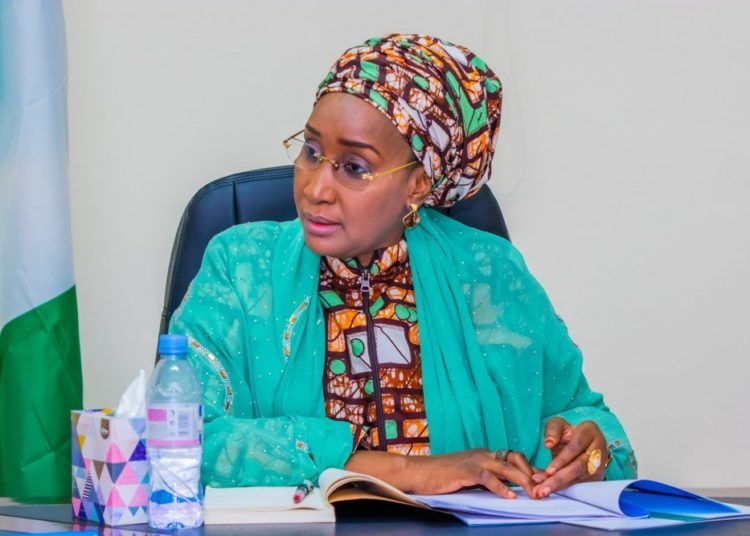Federal Ministry of Humanitarian Affairs, Disaster Management and Social Development have signed a one-year partnership with an international non-governmental organisation, Save the Children International, to monitor the federal government’s National Social Investment Programmes in the states as a third party.
The memorandum of understanding (MoU) was signed in Abuja. The partnership is expected to foster transparency and accountability of the programmes across the states of the federation.
The partnership between both parties is also for one year after which the agreement would be reviewed.
The minister of Humanitarian Affairs, Disaster Management and Social Development, Sadiya Farouq, during the official signing of the agreement explained that the agreement and its implementation would hasten the effectiveness of the NSIP to achieve President Muhammadu Buhari’s directive of lifting 100 million Nigerians out of poverty by 2030.
On the monitoring and evaluation conducted by the ministry, Farouq said: “You may recall that the National Social Investment Programme (NSIP) was created by President Muhammadu Buhari in 2016 with the mandate of lifting citizens out of poverty through social interventions which include Conditional Cash Transfer (CCT), Government Enterprise and Empowerment Programme (GEEP), National Home-Grown School Feeding Programme (NHGSFP) and Npower for job creation.
“I am sure you all realise that the need to closely monitor and evaluate these investments is an important component of the NSIP and its role in programme implementation cannot be underrated.
“This is the primary reason why the ministry deliberately launched a strategy on M&E at many levels. At the local level, the ministry engaged the services of 7,500 Independent Monitors (IMs) spread across the 36 states of the federation and the Federal Capital Territory.
“These 7,500 independent monitors are currently on the field monitoring the implementation of the NSIP. Every month over 250,000 unique programme reports are submitted by the independent monitors.”
On the importance of the partnership, the minister said: “To further foster accountability, transparency and effectiveness, through this M&E strategy, I directed for the engagement of Civil Society Organizations as an additional layer of close monitoring.
“Through this partnership, Save the Children International will engage the services of 18 other Civil Society Organizations (CSOs) to provide third-party monitoring of NSIPs. These CSOs will provide an independent report on NSIPs in the states they deliver their support.”
She added that they would provide additional capacity building to the independent monitors as well as carry out spot checks in locations of the NSIP Implementation.
She also urged the CSOs that would be engaged and any other relevant stakeholders involved in the monitoring of NSIP to take their duty patriotically and see it as part of their contribution to nation-building.
The director of Advocacy of Save the Children, Amanuel Mamo, said the partnership would strengthen community participation in decision-making about the programmes and ensure effective management of appeals and complaints.
Mamo said: “This establishes a process whereby ordinary citizens who are the beneficiaries of public services or just community members – voice their needs and demands and create opportunities to hold service providers and policymakers accountable for their performance.
“This will strengthen community participation in decision-making about the programmes and ensure effective management of appeals and complaints. We are happy to be part of history as a team that coordinates the delivery of social accountability mechanisms in the National Social Investment Programme. It is believed that this will encourage transparency and accountable behaviour from service providers, as well as be a mechanism through which beneficiaries and their communities can gain confidence in their ability to effect positive change.
“An effective social accountability mechanism will also help in improving service levels to the citizens, thereby ensuring that the government gets a better return on investment,” he said.





